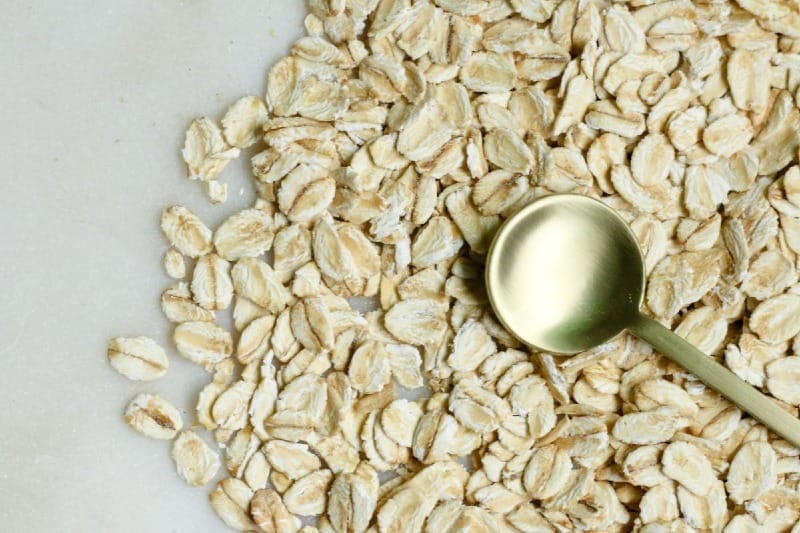According to recent research from the University of Arizona 1 , consuming foods rich in beta-glucan, a fiber found abundantly in oats, may offer weight loss benefits similar to popular medications like Wegovy and Ozempic, potentially providing a natural alternative for managing body weight and improving glucose control.
Beta-Glucan Discovery
The groundbreaking research on beta-glucan's weight management potential was led by Frank Duca, an associate professor at the University of Arizona's Department of Animal and Comparative Biomedical Sciences. 1 Duca and his team set out to investigate the impact of different types of fiber on gut microbiota and their subsequent effects on weight loss and glucose control.
The study, published in The Journal of Nutrition, compared five different plant-based fibers: pectin, beta-glucan, wheat dextrin, starch, and cellulose. 1 Among these, beta-glucan stood out as the only fiber that resulted in significant reductions in body weight and fat, while also improving glucose homeostasis in rodent models. 1
This discovery is particularly significant in the context of the current weight loss market, where medications like Ozempic (semaglutide) have gained popularity for their rapid weight loss effects. 1 However, these drugs are often expensive without insurance coverage and are primarily prescribed for treating type 2 diabetes in adults. 1
The researchers' findings suggest that beta-glucan could offer a natural, more accessible alternative to these medications. Duca emphasized the importance of identifying specific types of beneficial fiber, stating, "We wanted to know what kind of fiber would be most beneficial for weight loss and improvements in glucose homeostasis so that we can inform the community, the consumer and then also inform the agricultural industry." 1
This research builds on previous studies conducted by the Duca Lab, which found that barley flour was particularly effective in promoting weight loss compared to other commercially available flours. 1 The team is now exploring other types of fiber that may have similar beneficial effects on weight reduction and metabolic health.
Looking ahead, Duca expressed interest in collaborating with other researchers to develop enhanced fibers that can optimize the release of butyrate, the key metabolite associated with beta-glucan's beneficial effects. 1 This ongoing research could potentially lead to the development of more targeted and effective dietary interventions for weight management and metabolic health.
Mechanisms of Beta-Glucan
Beta-glucan's beneficial effects on weight management and glucose control are attributed to its unique interactions with the gut microbiota and the resulting metabolic changes. The research led by Frank Duca at the University of Arizona has shed light on the specific mechanisms through which beta-glucan exerts its effects 1.
One of the key findings is that beta-glucan consumption leads to changes in metabolites, which are molecules produced when gut bacteria interact with fiber. Of particular importance is the production of butyrate, a short-chain fatty acid that plays multiple roles in promoting health 1 :
- Butyrate serves as a primary fuel source for colon cells, helping to maintain a healthy gut barrier and reduce systemic inflammation.
- It induces the release of gut peptides, including glucagon-like peptide-1 (GLP-1), which regulates various gut functions.
The release of GLP-1 is especially noteworthy, as it mimics the action of drugs like semaglutide (Ozempic). GLP-1 stimulates insulin production and helps create a feeling of fullness, contributing to weight loss and improved glucose control. However, naturally occurring GLP-1 degrades rapidly near the intestine, while synthetic versions like semaglutide are designed to last longer and target the brain 1.
Duca explains that the benefits of dietary fiber, including beta-glucan, are partly due to the release of GLP-1 and other gut peptides that regulate appetite and body weight. However, he also notes that this is likely not the full extent of beta-glucan's effects 1 :
"We think that there are other beneficial things that butyrate could be doing that are not gut peptide related, such as improving gut barrier health and targeting peripheral organs like the liver."
This multifaceted approach to improving metabolic health sets beta-glucan apart from single-mechanism pharmaceutical interventions. By promoting a healthier gut environment, stimulating beneficial gut peptides, and potentially influencing other organs directly, beta-glucan offers a holistic approach to weight management and metabolic health.
The research team is continuing to investigate other types of fiber that may have similar beneficial effects. They are also exploring the possibility of developing enhanced fibers that can optimize the release of butyrate, potentially leading to even more effective dietary interventions for weight management and metabolic health in the future 1.
Dietary Sources of Beta-Glucan
Beta-glucan, the fiber that has shown promising effects on weight management and glucose control, can be found in various food sources. While the University of Arizona study specifically focused on oats, beta-glucan is present in several other dietary options as well.
Oats are one of the most well-known and readily available sources of beta-glucan. They contain a particularly high concentration of this beneficial fiber, making them an excellent choice for those looking to incorporate more beta-glucan into their diet. Oats can be consumed in various forms, including oatmeal, overnight oats, oat bran, and as an ingredient in baked goods 1.
Barley is another significant source of beta-glucan. In fact, previous research by the Duca Lab found that barley flour was particularly effective in promoting weight loss compared to other commercially available flours 1. Barley can be used in soups, stews, salads, and as a substitute for rice in many dishes.
Mushrooms are also a notable source of beta-glucan. Various types of edible mushrooms contain this fiber, although the concentration may vary depending on the specific variety. Incorporating a variety of mushrooms into your diet can provide not only beta-glucan but also other beneficial nutrients.
Yeasts, including baker's yeast and brewer's yeast, contain beta-glucan as well. While not typically consumed in large quantities, these can be incorporated into baked goods or used as nutritional supplements.
It's important to note that the effectiveness of beta-glucan may vary depending on its source. Frank Duca, the lead researcher of the University of Arizona study, mentioned that "future studies will examine how different sources of beta-glucan could differ in their effectiveness" 1. This suggests that while all these sources contain beta-glucan, they may not all have the same potency in terms of weight management and glucose control.
For those looking to increase their beta-glucan intake, incorporating a variety of these foods into their diet may be beneficial. However, it's crucial to remember that dietary changes should be made in consultation with a healthcare provider, especially for individuals managing conditions like diabetes or obesity.
Sources:
Implications for Weight Management
The discovery of beta-glucan's potential effects on weight management and glucose control has significant implications for individuals seeking to manage their weight without relying on pharmaceutical interventions. This natural alternative could provide a more accessible and sustainable approach to weight loss and metabolic health improvement.
Beta-glucan's ability to reduce body weight and fat, as demonstrated in the University of Arizona study, suggests that incorporating beta-glucan-rich foods into one's diet could be an effective strategy for weight management 1. Unlike medications such as Ozempic (semaglutide), which can be expensive and may have side effects, beta-glucan is a natural component of many common foods, making it a more affordable and potentially safer option for many individuals 1.
The research indicates that beta-glucan's effects on weight loss are comparable to those of popular weight loss medications. This is particularly noteworthy because it suggests that dietary interventions could potentially achieve similar results to pharmaceutical treatments 1. For individuals who are unable or unwilling to use weight loss medications, this finding offers hope for an alternative approach.
Moreover, the study's results highlight the importance of fiber quality over quantity. Not all fibers are equally effective in promoting weight loss and improving metabolic health. The research showed that among the five different plant-based fibers studied, only beta-glucan resulted in significant reductions in body weight and fat, as well as improvements in glucose homeostasis 1. This underscores the need for a more nuanced understanding of dietary fiber and its effects on health.
The mechanisms through which beta-glucan promotes weight loss are multifaceted. Its ability to stimulate the production of butyrate, a key metabolite, leads to the release of gut peptides like GLP-1, which can help regulate appetite and body weight 1. This natural stimulation of GLP-1 mimics the action of drugs like semaglutide but without the need for synthetic compounds.
Furthermore, the potential benefits of beta-glucan extend beyond just weight loss. The improvement in glucose homeostasis observed in the study suggests that beta-glucan could also play a role in managing or preventing type 2 diabetes 1. This dual benefit makes beta-glucan a particularly promising dietary component for overall metabolic health.
It's important to note that while these findings are promising, they don't negate the value of a comprehensive approach to weight management. A balanced diet, regular physical activity, and other lifestyle factors remain crucial components of any weight loss strategy. However, the research on beta-glucan provides valuable insights into how specific dietary components can be leveraged to enhance weight loss efforts.
As research in this area continues, it may lead to the development of more targeted dietary interventions for weight management. Future studies may explore how different sources of beta-glucan compare in effectiveness, potentially leading to more precise dietary recommendations 1. This ongoing research could revolutionize our approach to weight management, offering natural, food-based solutions that rival the effectiveness of current pharmaceutical interventions.














Member discussion